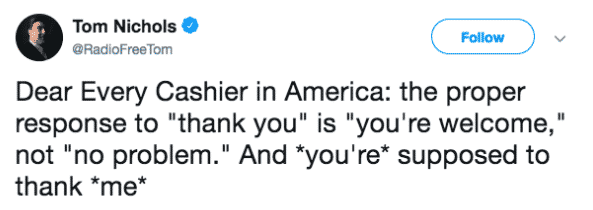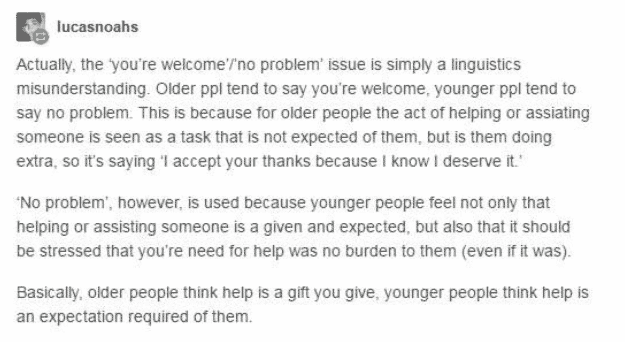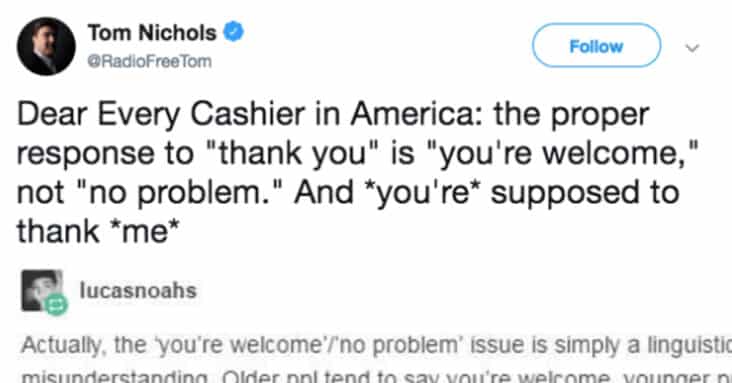There has always been a good amount of generational finger-pointing. Boomers and Gen-Xers especially like dumping on the fresh generations. Boomers vs millennials are the most common faceoff. I mean, it makes sense. The shift into a more technological “internet” age has changed things drastically.
The most common complaint I hear from grumpy old farts is “kids just don’t know how to act these days.” A complaint I’m sure is just as old as “this music makes me angry.” An example from resident crotchety old man Tom Nichols.

Obviously, the folks of Twitter took a big steamy dump on him for this, but then, a voice of reason. An explanation…

Actually, the “you’re welcome/no problem” issue is simply a linguistics misunderstanding. Older ppl tend to say “you’re welcome,” younger ppl tend to say “no problem.” This is because for older people the act of helping or assisting someone is seen as a task that is not expected of them, but is them doing extra, so it’s them saying, ‘I accept your thanks because I know I deserve it.’
No problem, however, is used because younger people feel not only that helping or assisting someone is a given and expected but also that it should be stressed that your need for help was no burden to them.
Basically, older people think help is a gift you give, younger people think help is a requirement.
Cut people some slack.
If you operate in the world expecting everyone to be dumber than you, you will learn nothing. Cut people some slack. Don’t jump to the automatic negative conclusion. Did the person responding make a good point? Yes. Is it universally true? Not at all. Let’s keep more open minds in 2021.



